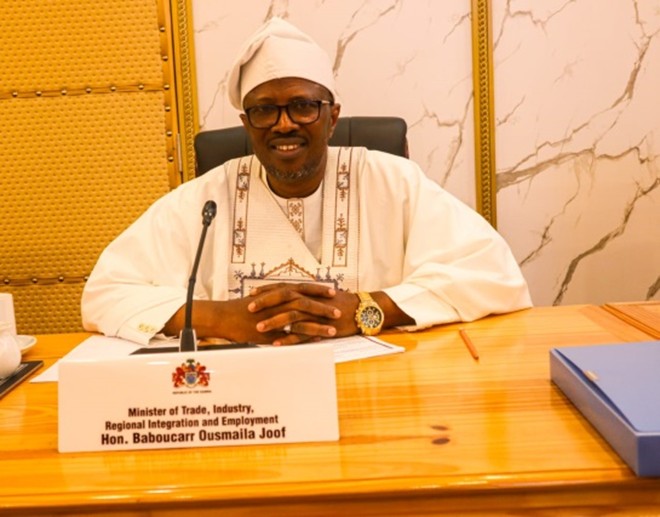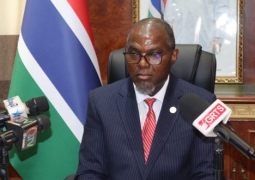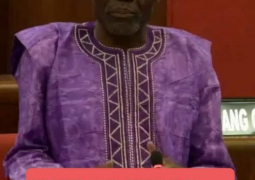
In the statement marking this historic milestone, Minister Joof reflected on five decades of regional cooperation since ECOWAS was established on May 28, 1975, in Lagos, Nigeria. The Minister highlighted The Gambia's significant achievements under ECOWAS frameworks, including democratic consolidation following the 2016 elections, economic growth exceeding 4% in 2024, and enhanced regional integration through various trade liberalization schemes.
Minister Joof began by recognizing the vision and commitment of ECOWAS founding leaders who laid the foundation for what has become "a model of regional solidarity, cooperation, and integration." He noted that this golden jubilee provides an opportunity to assess achievements, acknowledge challenges, and reaffirm collective efforts toward building a prosperous and resilient West Africa.
The Minister recalled that ECOWAS was officially established through the signing of the Treaty of Lagos by Heads of State and Government of 15 West African countries, with the founding goal of promoting economic cooperation and integration to raise living standards across the region. The 1993 treaty revision further broadened ECOWAS's scope to include political affairs, peace and security, and democratic governance.
Celebrating Five Decades of Progress
Over the past 50 years, Minister Joof highlighted several key areas where ECOWAS has made tremendous strides:
In political and democratic consolidation, ECOWAS has actively supported democratic transitions and election monitoring across the region. The Minister expressed deep appreciation for ECOWAS's critical role in ensuring peaceful transition of power following The Gambia's 2016 presidential elections, marking a historic milestone in the country's political journey.
On economic integration and trade, The Gambia's GDP growth exceeded 4% in 2024, driven partly by regional trade frameworks. The country remains committed to key ECOWAS integration programmes including the ECOWAS Trade Liberalization Scheme (ETLS), the ECOWAS Common External Tariff (CET), and the Interconnected Transit Guarantee System (SIGMAT), all contributing significantly to boosting intra-regional trade, industrial development, and agricultural productivity.
The West African Monetary Programme, particularly its macroeconomic convergence efforts, has helped mitigate asymmetric shocks while supporting improvements in the financial system, trade facilitation, and statistical harmonization.
Investing in Human Development
Minister Joof emphasized ECOWAS's continued investment in human development through education. Under the ECOWAS Nnamdi Azikiwe Academic Mobility Scheme (EMAAMS) programme, over 15 Gambian students have successfully completed various Technical and Vocational Education and Training (TVET) programmes, empowering youth with skills needed for decent employment and innovation. Additionally, The Gambia has received ECOWAS Commission funding to develop a National Human Capital Development Strategy, which his ministry will soon launch in collaboration with the Ministry of Higher Education.





